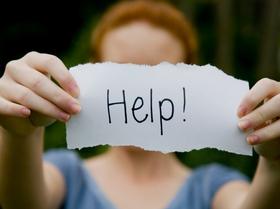Cindy Springsteen writes about teens for the Long Island Examiner. I asked her about the challenges facing teens and their parents in the 21st century within the context of sending them off to private school. Here are her answers. ~ Robert Kennedy
RK: Does sending your teens off to private school help protect them from drinking and other forms of substance abuse? Your reasons?
CS: No, I do not think sending your teens to a private school is going to protect them from the dangers of drinking and other forms of abuse. Teens are teens, and just because they are in a private school, they will still be exposed to everything available to them in the public schools. In some cases, it is said that private school teens come from families with money and could more easily purchase bad things. This is a personal opinion.
RK: Cindy, I agree that teens are teens. Whether they go to private or public school, they will be exposed to all sorts of opportunities to drink. The difference, however, with private school is that if they are caught, the consequences will be serious and swift. I know of an instance at one of my daughters' schools where a couple of seniors decided to sneak a drink on campus a few days before graduation. They were caught and were not permitted to attend graduation.
RK: Let's look at another serious issue. Suicide is one of the leading causes of death in teens. How do we keep our teens from hurting themselves?
CS: We all want to prevent our teens from hurting themselves. Unfortunately, there is no foolproof way to do this. The best way to try is to make sure you communicate with your teen. It's best to start this early in life. Make a point to spend quality time each day just listening to your child. How you react to the things they tell you is key! Don't overreact or flip out when you are told something. If you do, it will immediately create a wall between you and your teen that might be hard to break down again. Talk to your teens about the dangers out there. Do this at a time of day when they are more likely to talk. Do not do this as soon as they arrive home from school. Know their friends. If your teen is in day school, be the parent who drives to places. You see and hear a lot when you're the taxi driver. Build trust. No one is perfect, so don't make the mistake of letting them think you are. They need to know that even though you are their parent, you are human, and everyone makes mistakes.
RK: Most private schools are very proactive when it comes to discussing suicide and teaching about it. In most schools, everyone from the groundskeeper to the head of school is trained to know what to watch for. Students are also taught what to look for. Unfortunately, the reality is that if a young person wants to end his life, he can and will.
RK: I was a teen in the 1960s. My options for mischief back then were quite limited, you know, an illicit cigarette here or a beer there. AIDS had not appeared. STDs were around. Speeding, of course, was always a macho thing to do. But these days, things seem so complicated. What's a parent to do?
CS: Be as educated and informed as you possibly can be. There are so many new dangers out there that we parents never even heard of. Teens love to try new things. Most experiments with these things seem to arise out of boredom. When you hear of new things, talk to your teen and research them together. Let them know the dangers. See the pictures of others who almost died as a result. Don't let your teens walk the streets. Find places they can go hang out, if there is not one in your area, work with other parents and your community to open a "Teen Center."
Some schools, if prompted, will open on Fridays to host basketball games, volleyball games, dances, etc. Parents can chip in a couple of dollars for drinks and snacks. The school my son attends does this, and the kids love it. Schools are likelier to do this on a Friday as janitors are usually there late to clean up. The more your teens have to do to keep them busy, the less likely they will have the time to get into trouble.
RK: I agree, Cindy. A watchful parent is the best remedy. You must know where your kids are, who they are with, and what they are doing. By the way, private schools generally have very strict policies about drinking and substance abuse. Zero tolerance is very common. Tied in with those policies are plenty of discussions and prevention seminars. I agree with you, Cindy. You cannot ignore the issue and pretend that it will go away on its own.
RK: What do you feel is the best advice to give teens regarding sex?
CS. This topic creates many issues for parents and teens. Of course, in a perfect world with perfect teens, we would love for them to wait until they are married to have sex or at least until they are older. Society and television shows make this waiting seem almost impossible for some teens. They see shows where young teens are having sex. Many shows do not even portray this to be wrong. What is a parent to do? Once again, communication with your teens and education regarding this are critical. Remember that just because they ask you a question, that doesn't mean they will or are even ready to, but if you don't handle the questions without jumping on them as to why they shouldn't, you might be surprised they were just curious. It would be better for them to come to you about this and be prepared than to wind up with a pregnant teen. Of course, this is not to say that you condone it. Tell them you think they are too young and unprepared for this commitment. You must be open to hearing what they say and guide them to make the right choices.
RK: It's a tough battle to fight. The entertainment industry glorifies sex. Our children's peers think there is nothing wrong with it. You are right. We parents need to keep the lines of communication open. Always. No matter what.
RK: Do teens from middle-class families have any advantage regarding their upbringing? In other words, does money matter?
CS: Do I think money matters? Yes, I must say I do believe it does matter in the scheme of things. Teens who are raised with money and those who are raised struggling are living two different types of lives. Having money or not having money
affects the way they act, the way they feel, and sometimes how they may treat others. If they never have to work for something compared to the teen who maybe does have to work for everything, they are from two different worlds. This is not to say that teens with money are selfish or greedy. They just may never fully understand the world of those who are not as fortunate as they are. The teen without money may not be able to go to all the places the one with money can. Teens have a habit of belittling those not like them; again, not all teens just my personal opinion from experiences and research on teens.
RK: I think you have touched on something quite profound, Cindy. That's one reason I have always been enthusiastic about private and public schools that try to bridge the gap between rich and poor. Uniforms and dress codes help a bit. So do the basic chores many schools expect their students to do. And, of course, proactive recruiting of students from every strata of society is another way private schools seek to redress the imbalance.
Thanks, Cindy, for sharing your thoughts and opinions with us.
Questions? Contact us on Facebook and Instagram. @privateschoolreview





















